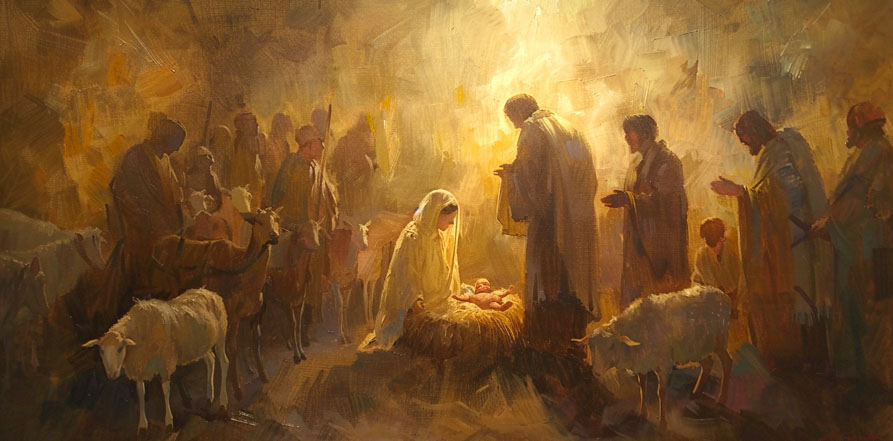In my blog post last week, I explored the connection between Vital Spirit and health. In my professional work as an herbalist and in my personal life, I believe that a strong and resilient Vital Spirit is the foundation for a healthy and happy life. But how do we strengthen the intangible quality of Vital Spirit? The answer lies in practices that encourage peace, expansiveness, and self-reflection—prayer, meditation, spiritual reading, time in nature, and even creative pursuits where the superficial falls away, and we find our deeper selves. Through these practices, we can be certain that we are living in accordance with our deepest truth.
How Prayer Can Nourish Peace Of Mind
A practice of daily prayer can provide great solace. But it’s important to not pray with the intent of petitioning God. When we make requests of God, we are attempting to control outcome, which merely leads us back to fear when our problems are not solved in the way that they think they should be. We have no control over God, and we cannot know or understand God with words. The only way that we can know God is through love. We must relinquish the practice of asking God to answer our prayers. Instead, we need to let go and trust.
We must cultivate a place of inner peace, quiet our minds, and allow pure love to connect us to God. We must forget everything, and in this forgetting, we discover that God is everywhere, and that we are everywhere as well. In our willingness to venture into this place of unknowing, we transcend fear and limitation. We become more comfortable with uncertainty, and thus are better able to fully inhabit the present moment.
Contemplative prayer is a simple, accessible means to cultivate the discipline that the spiritual journey requires. In the silent repetition of prayer, we experience the presence of God and are receptive to God’s intention. All world religions share a similar practice in invoking the name of God to find the quiet, still space within where God can be directly experienced. The practices of Lectio Divina and Poustinia are ways in which contemplative prayer can be woven into the fabric of daily life.
The Practice Of Lectio Divina
The practice of lectio divina (Latin for “divine reading”) is an ancient method of prayer that employs the reading of scriptures to encourage communion with God, and in the process, inspire spontaneous spiritual insights.
Lectio divina is adaptable for people of all faiths; it does not matter if you are reading the Bhagavad Gita, the Torah, or the Koran. What matters most is the intention with which you approach the reading. There are four basic principles involved in practicing lectio divina: sensing, thinking, intuiting, and feeling.
Before beginning the practice of lectio divina, it’s important to relax. Choose a comfortable, quiet setting where you will not be disturbed. It can be helpful to take several slow, deep breaths to relax the body and to begin to clear the mind of worrisome thoughts. You may also find it helpful to recite a brief phrase or word over and over—choose something that is personally meaningful to you, perhaps a brief prayer or simply reciting the word, “Peace.”
There are four steps to the actual practice of lectio divina:
- Lectio: Choose a spiritual reading, a passage from the Bible or other sacred text. Read the passage slowly, allowing the words to sink deeply into your consciousness as you read. Consciously attend to each word, bringing your attention back to the passage if you find your mind wandering. As you read, be aware of words or phrases that resonate with particular meaning for you.
- Meditatio: Take time to reflect, or meditate, on the passage that you have read. How does it apply to your life? How might you use the wisdom that you have been offered as guidance in your life? Be open to a unique, personal interpretation of what you have read.
- Oratio: It is now time to respond to what you have read by opening your heart, your mind, and your soul to God. All that is required is a willingness to begin the conversation with God.
- Contemplatio: You have now prepared the fertile ground of your mind, body, and spirit to be receptive to the guidance of God. In this step, you free yourself from your own thoughts, and simply listen to God.
The Practice Of Poustinia
To be constantly in prayer in all that we do is referred to in Eastern Christianity as living within a poustinia. Although this originally meant a sparsely furnished room where one could focus solely on prayer, poustinia has come to mean any place where you can take refuge in God—especially within the quiet center of your own being. One can find communion with God in any locale, even in the midst of the busiest of lives. By cultivating a silent, still space within, the internal poustinia offers a personal, always available quiet place of connection with God.
When you enter the poustinia in prayer, you begin to understand that as we come from eternity, so will we return to eternity. Within this simple state of mind comes a tremendous peace, a peace that shatters the illusion between life and death. As we understand that life is truly timeless, our attitude becomes like that of the poustinik, and all fear gradually disappears.
Finding God In Nature
Saint John of the Cross, a Carmelite priest and a great mystic, taught the monks a humble exercise; to sit and contemplate where they could view the open sky, hills, trees, fields, and growing plants, and to call upon the beauty of these things to praise God. This simple meditation on Nature reminds us of Divine Power, and the wisdom and goodness that exist in Her. If we stop for a moment to consider the origin, magnitude, beauty, fullness, activity, and order of all things, we cannot doubt the beneficence of God.
The Creative Self As A Path To God
Music and art provide the opening that allows us to journey to the depths of our being. It is here that we gain a sense of true freedom, a dwelling place for the spiritual journey. This deep opening is more often found in the creative self through music and art rather than the intellectual thinking self. Music and art allow us to lose ourselves, and to then find ourselves all at the same time.
Explorations of our inner spirit through music or art expose us to a place otherwise hidden, a place where we discover spiritual vitality, a place that lifts us above ourselves to a level of being we otherwise did not know we could achieve.
When you are liberated from self you are now free to be in a space that is both empty of self and full of God. This is where we experience unconditional love. If we have not experienced ourselves as unconditional love, we have not lived, because that is who we really are. Our hearts need to sing the melody of the deep music within. That is the true spiritual journey.
Love As Medicine
It’s not uncommon that upon diagnosis of a serious illness, such as cancer, that people are often struck, as for the first time, with a deep understanding of the preciousness of life. Suddenly, our goals in life change—often radically—and we reevaluate who we are and where we are going. With great clarity, we become certain about who and what is important in our lives, and we know how we want to live out the rest of our days.
Rather than mechanically functioning in society striving for security and survival, the diagnosis of a life threatening illness can provide the impetus to begin to fully live. Sadly, although many people live 80 or 90 years or more, they have never truly lived, and they leave this life with deep regrets. How, then, shall we live? How do we live today so that at the end of our lives—whether one day or decades from now—we can say that we have wholly lived this precious life?
The answer can be distilled to the simple precept of love—love for God, for ourselves, and for all beings. Despite all that we have gained in the realm of modern life—including advances in medical technology—we have lost our connection to what is most important. We wander aimlessly, seeking the objective while forfeiting the subjective. Money, greed, power, and prestige are the objective, while our spiritual life and the pursuit of the divine love that is God is our subjective path.
It is only spirit that is eternal, and spirit, which resides in each of us, must be born and grow in divine love. This is our true nature. We must find true love and give love. We find this love within ourselves where God dwells, within each other by giving love, and within nature. We cannot own love, or buy it, or possess it, for true love is free and is always giving of itself.
As eternal spirit dwelling within the physical body, we are called by God to live. We are called to a life of joy and freedom, where our daily walk reflects the growth of our spirit. This spiritual growth is an active relationship with God that is reflected in how we help one another.
When we love selflessly, we are fulfilling our true nature and are filled with joy. We cannot live life with the goal of merely surviving. We must live life being alive in spirit, pursuing a journey of loving. When we live with the goal of loving unconditionally, we are creating a life that is whole and healed.
Living The Spiritual Pilgrimage
The mystery that surrounds spiritual growth can only occur if we are open to it. We cannot live life fully being spiritually stagnant, merely functioning, lacking imagination, with knowledge but no wisdom, with little or no creativity, without the expression of art and music, without the pursuit of selfless love. We must listen, with our hearts and souls, in order to follow our true path, which is the path of love. The pursuit of spirit is one of truth, beauty, and loving kindness, expressed as compassion, tenderness, concern for others, service, goodness, gentleness, forgiveness, and understanding.
A house in not built by beginning at the top and working down. You must first create a strong foundation; only then can you build a strong house. In physical terms, this means supporting the body with optimal nutrition, rest, and appropriate exercise. In terms of the mind and emotions, we must learn to calm the mind, to forgive, to love, and to live with integrity in our relationships with others and ourselves. And in terms of spirit, we must nourish our connection to God through prayer and reflection. By attending to all of these aspects of our being, we can move beyond mere “survival tactics” and instead to living in a vibrant state of optimal health.
Suggestions For Nourishing Vital Spirit
- Immerse yourself in the sounds, smells, sensations and visual beauty of Nature. Walk or hike in the woods, in the desert, in a park, along a stream or by the ocean—sometimes alone to commune with God, and other times with a close friend with whom you can dialogue about spiritual matters. In nature, we can see God both through and in the beauty of our surroundings.
- Nourish your soul through spirituality, prayer and religion. Meditate, pray, worship, go on a spiritual retreat, and seek truth in a manner consistent with your beliefs.
- Sit quietly in the morning and evening and let your mind be still. You may find the practices of mindfulness, lectio divina, or poustinia beneficial for calming your mind and creating the spaciousness that allows for communion with God.
- Practice letting go of worry. As Pope Francis has wisely said, “Do not be afraid of reality.” Reciting the simple prayer of St. Francis of Assisi can bring peace and comfort: “Lord, grant me the strength to accept the things I cannot change, the courage to change the things I can, and the wisdom to know the difference.”
- Cultivate gratitude. As you awaken each morning, give thanks for your breath and the gift of your life. Throughout the day, consciously practice expressing silent or spoken gratitude for all of the blessings you encounter.
- Slow down. A great way to do this is to notice the beauty around you in everything you do. Is the sun shining? What do you hear? How does the air feel on your skin? Smell the flowers, watch the sunset, and listen to the birds and wind rustling through the trees.
- Leave some unscheduled time in every day. If possible, spend one day each week without any planned activities.
- Do something for someone else each day. Helping others is a selfless action, but in reality, our involvement with others and their problems often causes our own problems to dissipate.
- Mealtimes are an opportunity to nourish your spirit as well as your body. In the time honored tradition of breaking bread with others, sit down to eat with family and friends (and even strangers). Express gratitude for the food, and savor the meal together, accompanied by pleasant conversation and laughter.
- Reduce your exposure to unnecessarily stressful input. Limit your exposure to the news to once or twice a week. Reduce noise pollution by listening less to television or talk radio. Instead, listen to soft, joyful, relaxing music, or simply tune in to the sounds of nature.
- Eliminate negative habits such as smoking, recreational drugs, drinking excessive amounts of alcohol, or staying up too late at night, all of which erode Vital Spirit.
- Be positive and believe in yourself. Negative self-talk and continually doubting your abilities is a sure way to create unhappiness.
- Love your family and friends and practice forgiveness. When you learn to forgive, you develop the emotional confidence to overcome any difficulty.
- Laugh each and every day. Laughter is extremely important for a healthy, long life. Seek out humor and joy: watch children playing, read a funny book, watch a comedy, and even learn to laugh good-naturedly at yourself.
- Practice maintaining your sense of peace and calmness in any situation, no matter how upsetting.
- The expression of love is our true divine calling. Appreciate the love that you have in your life, and the love that you witness around you. Giving love is as nourishing as receiving love—tell your family and friends how much you care about them, and demonstrate your love through your actions.
One thing is for certain—we all will face challenges throughout our lives. How we handle these challenges—whether we are defeated by them or see them as opportunities—has a great deal to do with our well-being, our happiness, and our Vital Spirit. If we can find the opportunity that exists in every challenge, we will develop a resilience of spirit and a deep contentment that will sustain us throughout life.
“God breathes through us so completely…
so gently we hardly feel it… yet,
it is our everything.” ~John Coltrane









